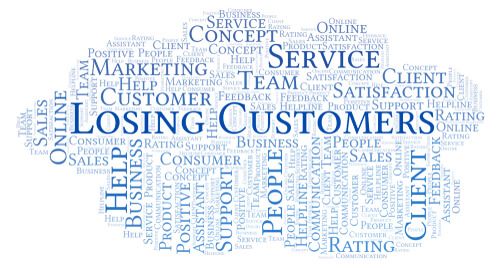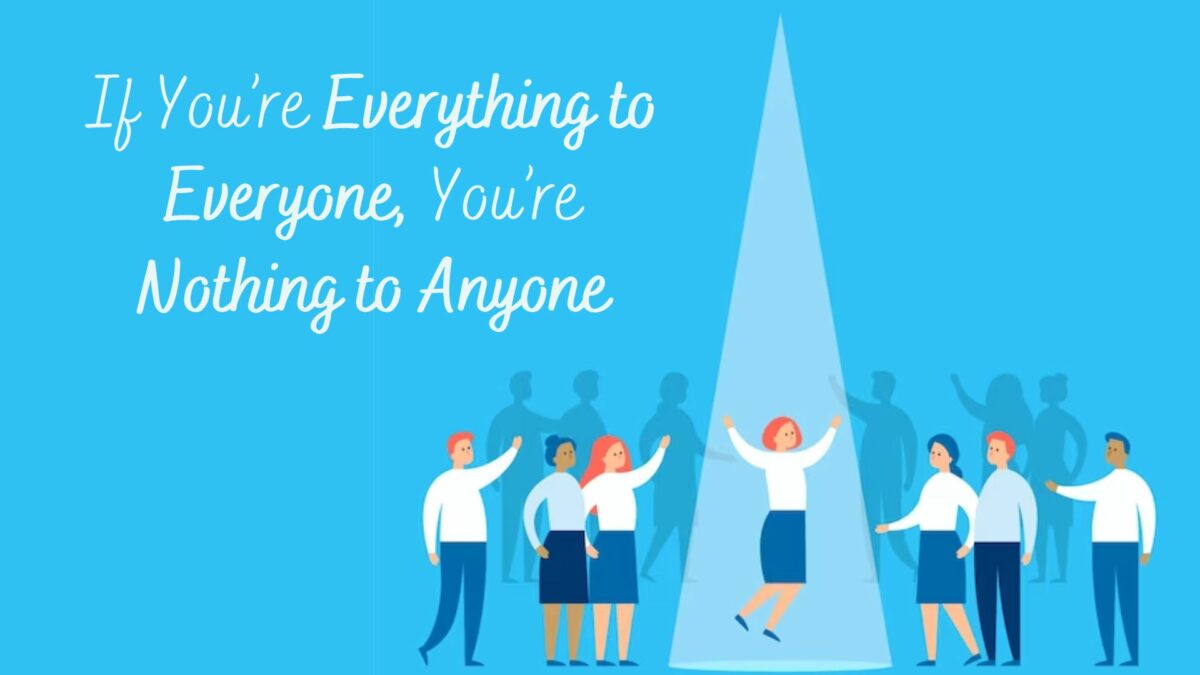A human being should be able to change a diaper, plan an invasion, butcher a hog, conn a ship, design a building, write a sonnet, balance accounts, build a wall, set a bone, comfort the dying, take orders, give orders, cooperate, act alone, solve equations, analyze a new problem, pitch manure, program a computer, cook a tasty meal, fight efficiently, die gallantly. Specialization is for insects.
–Robert Heinlein
When we first started out in the last company I co-founded, we branded ourselves as open-source software developers. In a time when the main software player was Microsoft, it was reasonable positioning. Adoption of open source technologies such as Apache, which powers the Internet, and Java, which powers the Android operating system, was slow and reluctant back in 2006, and we could make a case that what we were doing was much cheaper and easier to work with than getting prepackaged software from other companies.
For a couple of years, that was fine, but over time, other companies started adopting open-source software as well. Big companies like IBM had teams of developers, other startups were focusing on specific programming languages, and development shops overseas were gaining proficiency. Furthermore, the ecosystem of open source platforms grew exponentially, and our small team couldn’t hope to keep abreast of all of the developments, much less gain expertise in them all.
In marketing, you want to have one of a few positions:
- The undisputed expert in something. If you’re the expert, then you can charge the highest prices because you’re the best in the world. People come to you with the hardest problems because you’re the expert. In practice, this can mean being a relative expert compared to other people to whom potential customers would go, as the top experts are either limited by capacity or too expensive but for a select few clients.
- The cheapest. If you can beat everyone else on price and still be profitable, then you can offer rock-bottom prices. This is a difficult position to maintain, as generally, someone, somewhere can make it for cheaper, or your competitors will be willing to take an initial loss in order to upsell higher-value services or products.
- The most convenient. When someone wants it done right and they want it done fast, they’ll pay more for that service. If you have to have a package sent somewhere overnight, you’re going to go with one of three options: the USPS, UPS, or FedEx. Real estate experts have another phrase for this one: location, location, location.
- Create a market that nobody knew about. If you can invent demand, then you can provide something to meet the demand. Families 15 years ago didn’t know that they needed a robotic vacuum. Bar owners didn’t know that they needed hand dryers that would blow your epidermis off. Yet, Roomba and Dyson created their own niches and people are buying those products to serve wants they didn’t know they had.
We were seeing firsthand the struggles of a company that didn’t fit into one of those marketing positions. We were clinging to our marketing position and slowly watching revenues trickle away.
Why didn’t we change?
We were like most business owners. We were paralyzed by the business owner’s worst nightmare.
We might lose customers!

We had convinced ourselves for so long of the certainty of our position that we were afraid to make a move. There were millions of open-source users. If we specialized, we’d shrink the total number of potential customers! At the time that we were facing our existential crisis, we were looking at focusing on the Solr search engine as our area of specialty. After all, my partner had co-authored the book on the platform, and we’d been working with it since, literally, its inception. We truly were experts in the field.
However, we were looking at really narrowing down the world of potential customers. At the time we were evaluating the strategy, here’s what the gross revenues of Solr services compared to general open-source software services were.
Yes. We really were looking at shrinking our target market size by nearly 1000-fold.
At this point, the one phrase Monkey Brain learned in business school was yelling at me as he conjured up images of planes going down in flames:
“ALL YOU NEED IS 1% OF MARKET SHARE TO GET SUPER RICH!”
My friends, very few companies ever achieve 1% of any reasonably sized market share. Short of a patent or FDA drug approval, you’re not going to achieve much of a monopoly in the marketplace. You will have competitors. No matter how wonderful, amazing, and helpful your product or service is, people will choose your competitors’ offerings sometimes, despite your exhortations. You might achieve a reasonable percentage of a local market share, but you also need to be realistic in your expectations.
We weren’t ever going to achieve 1% of that market share. We weren’t even going to achieve .01%.
We were stuck in the undesirable of undesirables for marketing. We were more expensive than the cheapest competitors and had less expertise than the experts. Even though I didn’t realize it at the time, we were competing on convenience. We had top secret cleared developers and were just a few miles from one of the largest classified intelligence communities in the United States. Large contractors would win their bids and then come to us to fill slots because it was easier to turn to us for quality cleared help than it was to find it themselves.
But, that’s not what we wanted to be. We wanted to be thought leaders in something, and so we intentionally turned our backs on becoming a body shop for other companies.
We made a shift into specializing deeply in one area and went after market leadership in a much smaller marketplace.
Why narrow down the world of potential customers so much?
- The bigger market wasn’t terribly impressed with what we had to offer. Our declining revenues were the surest sign around that the story we were telling wasn’t causing many buyers to open up their pocketbooks and write checks. When revenues are declining, the appetite for risk should increase, as whatever you’re currently doing isn’t working. We took a risk.
- We could legitimately tell a story of being one of the top firms in the country, if not the world, in that subject area. We had more experience than all but a very small handful of companies. Our competitive landscape shrunk from thousands of competitors to three. It was much easier to establish top-of-mind recall and to maintain it in a small landscape, and we had effective defensible positions against newcomers.
- The number of adopters was rising exponentially. One of the biggest hallmarks of potential success of an open-source software platform is when a big, well-known name starts using it and lauding its capabilities. In the case of Solr, at that time, the CIA was using it, and Zappos had just adopted it. Using indirect testimonials from other trustworthy sources (“Your CTO can trust Solr; the CIA and Zappos use it”) allowed us to convince others that adopting it was safe for their enterprise.
- We were able to land a hallmark client. One of our first clients after we rebranded ourselves as a Solr consultancy was Zappos. Being able to say “Have you looked for shoes on Zappos? Then you’ve used a system that we worked on,” provided instant credibility. I wish I could provide testimonials on my site, but Registered Investment Advisers like me aren’t allowed to.
- We could raise our rates. When we were open-source generalists, potential buyers could haggle with us on prices because there was a credible threat of them going to someone else. When we were specialists, there was no such credible threat because we knew the rates and capabilities of our competitors. We knew what we offered and what the market would bear.
The transformation took a year. Within three years, we’d far exceeded the annual revenues of any of our previous years, and we never looked back. Furthermore, the specialization allowed us to slowly expand into adjacent verticals like big data management – something we could have never done had we remained as generalists.
When you’re providing a product or a service, a potential buyer needs to see your positioning, and, as Ramit Sethi points out, say “yeah, that looks like my situation.” If a buyer can’t see that alignment between what you provide and the pain he has, you’re not going to make many sales.
Author Profile
- John Davis is a nationally recognized expert on credit reporting, credit scoring, and identity theft. He has written four books about his expertise in the field and has been featured extensively in numerous media outlets such as The Wall Street Journal, The Washington Post, CNN, CBS News, CNBC, Fox Business, and many more. With over 20 years of experience helping consumers understand their credit and identity protection rights, John is passionate about empowering people to take control of their finances. He works with financial institutions to develop consumer-friendly policies that promote financial literacy and responsible borrowing habits.
Latest entries
 Low Income GrantsSeptember 25, 2023How to Get a Free Government Phone: A Step-by-Step Guide
Low Income GrantsSeptember 25, 2023How to Get a Free Government Phone: A Step-by-Step Guide Low Income GrantsSeptember 25, 2023Dental Charities That Help With Dental Costs
Low Income GrantsSeptember 25, 2023Dental Charities That Help With Dental Costs Low Income GrantsSeptember 25, 2023Low-Cost Hearing Aids for Seniors: A Comprehensive Guide
Low Income GrantsSeptember 25, 2023Low-Cost Hearing Aids for Seniors: A Comprehensive Guide Low Income GrantsSeptember 25, 2023Second Chance Apartments that Accept Evictions: A Comprehensive Guide
Low Income GrantsSeptember 25, 2023Second Chance Apartments that Accept Evictions: A Comprehensive Guide

